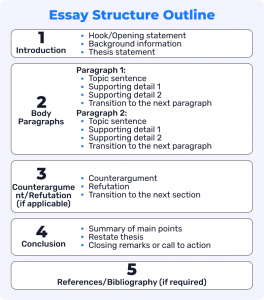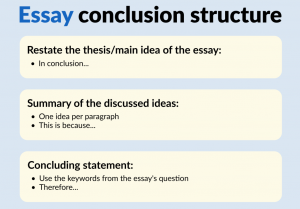The nursing profession is built upon a foundation of ethical principles, guiding every interaction with patients, colleagues, and the healthcare system. This ethical framework, a cornerstone of nursing practice, presents unique challenges and opportunities for reflection. A nursing ethics essay provides a platform for exploring these complexities, analyzing ethical dilemmas, and proposing solutions informed by both professional standards and personal values.
However, writing a compelling nursing ethics essay requires more than just a grasp of ethical principles. It demands a nuanced understanding of the subject matter, strong argumentation, and a clear, concise writing style.

This comprehensive guide provides a roadmap for navigating the ethical landscape of nursing, outlining the key elements necessary to create a powerful nursing ethics essay.
How to Write a Compelling Nursing Ethics Essay
- Choosing Your Topic: Identifying the Ethical Crossroads
The first step in crafting a strong nursing ethics essay is selecting a relevant and engaging topic. This can be an ethical dilemma encountered in your own practice, a current debate within the nursing profession, or a broader societal issue with implications for healthcare.
Here are some suggestions to consider in order to choose a captivating topic for your nursing ethics essay:
- Case Studies: Analyze a specific clinical case that raises ethical concerns. For example, you might explore the ethical considerations involved in end-of-life care, informed consent, or resource allocation.
- Current Issues: Focus on pressing ethical dilemmas within the nursing profession, such as mandatory vaccinations, nurse-to-patient ratios, or the use of technology in healthcare.
- Ethical Theories: Examine how different ethical theories – such as utilitarianism, deontology, or virtue ethics – can be applied to nursing practice.
- Societal Issues: Explore the intersection of nursing ethics with broader societal issues like access to healthcare, social justice, or environmental sustainability.
- Research and Literature Review: Building a Strong Foundation
Once you have identified the topic to focus on, it's essential to conduct thorough research to support your arguments. This involves:
- Reviewing Nursing Ethics Literature: Familiarize yourself with established codes of ethics, professional guidelines, and ethical frameworks relevant to nursing.
- Exploring Academic Journals: Examine peer-reviewed articles that discuss ethical issues related to your chosen topic. Established academic writing platforms such as Nursing Papers offer several scholarly articles on nursing ethics for your reference.
- Consulting Legal Resources: Understand the legal implications and regulations surrounding the ethical issue you are exploring.
- Seeking Clinical Expertise: Interview experienced nurses or healthcare professionals to gather insights from real-world practice.
- Developing a Clear Thesis Statement: Establishing Your Argument
A strong thesis statement is the backbone of any nursing ethics essay. It clearly articulates the main argument you will be defending throughout your essay.
Here are some guidelines for crafting a compelling thesis statement:
- Specificity: Avoid broad statements and instead focus on a specific aspect of the ethical issue.
- Arguability: Your thesis should present a debatable point of view that you will support with evidence.
- Clarity: Express your argument in a clear and concise manner, making it readily understandable to your readers.
- Structuring Your Essay: A Framework for Ethical Reasoning
The structure of your nursing ethics essay should guide readers through your ethical analysis. A well-organized essay will demonstrate a logical flow of ideas and facilitate understanding.

Here's a suggested structure:
- Introduction: Briefly introduce the topic and its relevance, followed by a clear thesis statement.
- Background: Provide background information on the ethical issue, including relevant definitions, concepts, and historical context.
- Ethical Frameworks: Analyze the ethical implications of the issue using relevant ethical theories and principles. Consider different perspectives and their potential strengths and weaknesses.
- Case Studies and Examples: Use real-world case studies or examples to illustrate the ethical complexities of the issue and support your arguments.
- Ethical Implications: Discuss the potential consequences of different actions or choices related to the ethical dilemma.
- Conclusion: Summarize your main points, reiterate your thesis statement, and offer potential solutions or recommendations.
- Writing with Clarity and Conciseness: Communicating Your Ethical Analysis
Clear, concise writing is crucial for conveying your ethical analysis effectively.
Here are some writing tips for your nursing ethics essay:
- Active Voice: Use active voice whenever possible to create a more direct and engaging writing style.
- Precise Language: Avoid jargon and technical terms that may confuse your readers.
- Formal Tone: Maintain a formal tone throughout your essay, as it reflects the seriousness of the subject matter.
- Avoid Plagiarism: Properly cite all sources using a consistent referencing style.
- Incorporating Ethical Theories: Applying Frameworks to Your Argument
Understanding different ethical theories is essential for analyzing and addressing ethical dilemmas in nursing. Here are some prominent theories and how they can be applied in your nursing ethics essay:
- Utilitarianism: This theory prioritizes the greatest good for the greatest number of people. When applying utilitarianism, you would consider the potential consequences of different actions and choose the option that maximizes overall benefit.
- Deontology: This theory emphasizes moral duty and following universal principles. When applying deontology, you would focus on the inherent rightness or wrongness of actions, regardless of their consequences.
- Virtue Ethics: This theory focuses on developing moral character and acting in accordance with virtues like compassion, honesty, and integrity. When applying virtue ethics, you would consider the character traits of those involved in the situation and how they influence their actions.
- Engaging with Counterarguments: Demonstrating Critical Thinking
A strong nursing ethics essay engages with alternative perspectives and counterarguments. This demonstrates critical thinking and strengthens your analysis.
When addressing counterarguments:
- Acknowledge the opposing viewpoint: Present the counterargument fairly and objectively.
- Refute the counterargument: Explain why you disagree with the opposing viewpoint and provide evidence to support your claim.
- Bridge the gap: If there is partial validity to the counterargument, acknowledge its limitations and explain how your position ultimately offers a more comprehensive solution.
- Drawing Conclusion and Offering Recommendations: Leaving a Lasting Impact
The conclusion of your nursing ethics essay should synthesize your analysis and leave a lasting impression on your readers.

Here are some key elements to include in your conclusion:
- Restate your thesis: Briefly reiterate your main argument and emphasize its significance.
- Summarize key findings: Highlight the most important points of your analysis.
- Offer recommendations: Suggest potential solutions or strategies for addressing the ethical dilemma.
- Call to action: Encourage further discussion, research, or action related to the issue.
Examples of Nursing Ethics Essay Topics
Here are examples of the best topics to consider for a compelling nursing ethics essay, emphasizing the crucial role of ethical considerations in nursing practice.
- The Ethical Implications of Using Restraints on Patients with Dementia: This nursing ethics essay could explore the balance between patient safety and respecting autonomy in cases of dementia, examining the ethical justification for using restraints and the potential consequences for patients' well-being.
- The Role of Nurses in Promoting Patient Autonomy and Informed Consent: This nursing ethics essay could analyze how nurses can effectively inform patients about treatment options, ensure their understanding, and respect their right to make decisions about their own care, even when those choices may differ from medical recommendations.
- The Ethical Considerations Involved in End-of-Life Care and Palliative Care: This nursing ethics essay could delve into the complex ethical issues surrounding end-of-life decisions, including pain management, the use of life-sustaining treatments, and the importance of providing compassionate and respectful care to patients and their families.
- The Impact of Technology on the Nurse-Patient Relationship: This nursing ethics essay could examine the ethical implications of increasing technology use in healthcare, considering how technology can enhance patient care, but also potentially diminish the human element of the nurse-patient relationship.
- The Ethical Challenges of Allocating Scarce Healthcare Resources: This nursing ethics essay could explore the ethical dilemmas involved in resource allocation, especially in situations of scarcity, considering the principles of fairness, justice, and the right to healthcare for all.
- The Role of Nurses in Advocating for Vulnerable Populations: This nursing ethics essay could analyze the ethical responsibility of nurses to advocate for vulnerable populations, such as those with disabilities, marginalized communities, or those facing social or economic disadvantages, ensuring their access to equitable and culturally sensitive care.
Navigating the Moral Compass of Nursing
Writing a nursing ethics essay is a valuable exercise in critical thinking and ethical reasoning. It allows you to delve into the moral complexities of nursing practice and to develop your ability to apply ethical principles to real-world situations. By following these guidelines, you can craft a compelling and insightful nursing ethics essay that will contribute to the ongoing discourse on ethics in the nursing profession.

Remember, your nursing ethics essay is not just an academic exercise; it is an opportunity to contribute to the ethical landscape of nursing. By exploring ethical dilemmas, offering informed perspectives, and proposing solutions, you can help shape a more ethical and just healthcare system.
Professional Nursing Ethics Essay Writing Help
Crafting an outstanding nursing ethics essay may still be challenging even with all the above insights. However, there is no reason to worry because at
Academia Scholars, we offer customized nursing ethics essay writing assistance. Our service covers topic suggestion, essay writing, proof reading and editing, and plagiarism check and removal. Besides nursing essays, we can also assist you with writing
research papers, case studies and
dissertations.
 This comprehensive guide provides a roadmap for navigating the ethical landscape of nursing, outlining the key elements necessary to create a powerful nursing ethics essay.
This comprehensive guide provides a roadmap for navigating the ethical landscape of nursing, outlining the key elements necessary to create a powerful nursing ethics essay.
 Here's a suggested structure:
Here's a suggested structure:
 Here are some key elements to include in your conclusion:
Here are some key elements to include in your conclusion:
 Remember, your nursing ethics essay is not just an academic exercise; it is an opportunity to contribute to the ethical landscape of nursing. By exploring ethical dilemmas, offering informed perspectives, and proposing solutions, you can help shape a more ethical and just healthcare system.
Remember, your nursing ethics essay is not just an academic exercise; it is an opportunity to contribute to the ethical landscape of nursing. By exploring ethical dilemmas, offering informed perspectives, and proposing solutions, you can help shape a more ethical and just healthcare system.